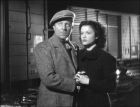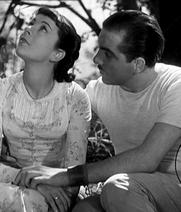At the peak of her international career, Maria Enders is asked to perform in a revival of the play that made her famous twenty years ago. But back then she played the role of Sigrid, an alluring young girl who disarms and eventually drives her boss Helena to suicide. Now she is being asked to step into the other role, that of the older Helena. She departs with her assistant to rehearse in Sils Maria; a remote region of the Alps. A young Hollywood starlet with a penchant for scandal is to take find out more...
After Renoir's reluctant addition of a couple of titles to satisfy the producers desire to expand to feature length, this masterpiece was finally released in 1946. On an idyllic country picnic, a young girl briefly leaves her family and fiance and succumbs to an all-too-brief romance. The careful reconstruction of period (around 1860) is enhanced by a typically touching generosity towards the characters and an aching, poignant sense of love lost, but never forgotten. And, as always in Renoir, find out more...






